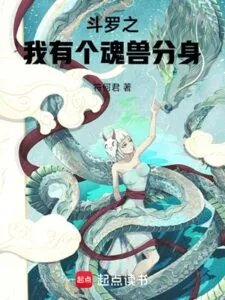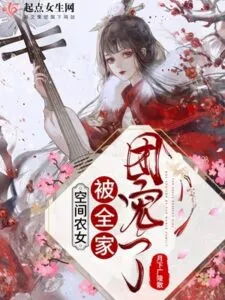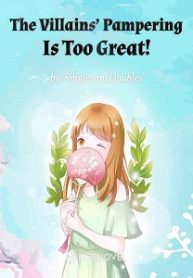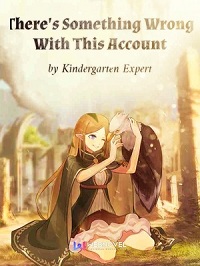Virtuous Sons: A Greco Roman Xianxia - Chapter 1.114 [The Caustic Queen] (Pt.3)
Chapter 1.114 [The Caustic Queen] (Pt.3)
The Caustic Queen
“Who are you, really?”
The Young Griffon asked the question without suspicion or any particular heat, and his pneuma did not stir from its work – but neither did he take the small clay jar from her outstretched hand. She leaned closer with it, waving the cloth-covered top under his nose so he could smell the sweet gold therein. He ignored it. Humming, she pulled back and knelt across from him.
Between them, a cultivator lay wheezing in the cool sands of the Olympic Stadium’s arena pit. The man appeared young enough, in his prime as most cultivators did, but she recognized him. His name was Chilon and he was closer to a century old than not. An eighth rank Philosopher, which made him senior to most in the world. Here in the pit, though, he was junior to all but one.
“What have you done to him?” she asked curiously, folding her legs primly and shifting her onyx silks so they pooled around her in the sand.
“What portion of a truth can be lies before it becomes no truth at all?”
She blinked. “Excuse me?”
“At what point did Theseus’ ship cease to be his own? Was it the day he died or was it when the final rotten plank was torn out and fresh wood slotted in its place?” Incorporeal hands of Griffon’s intent moved up and down the wounded Philosopher’s body, prodding and digging at different parts of his body and massaging his pneuma into Chilon’s flesh. Without looking up from his work, he continued, “Or will it always be his ship, even after all of us are dead and gone?”
She considered it briefly. It was a common thought experiment for junior Philosophers, and one she hadn’t thought about in years. She’d never heard of it used in this sort of context, though.
“It isn’t a fair comparison,” she decided.
“Ho?”
“The argument can be made that any ship is Theseus’ ship so long as to Theseus it belongs.” Whether or not a ship could still belong to a man after his passing was a sticking point of the topic, but in this case it didn’t matter. “Owning a ship is not the same thing as knowing the truth. The former is yours to alter as you choose, and so long as it can sail it will retain its core identity. Its purpose remains the same. On the other hand, the truth has no stated purpose. It simply is.”
“A ship has no purpose on its own,” Griffon pointed out, digging his flesh and blood fingers into the gap between two of Chilon’s ribs and frowning at the Philosopher’s pained gasp. “It won’t push itself into the water, nor work its own oars against the waves. If we chose to keep our ships on dry land and live in them like homes, then that would be their purpose. We decide their purpose. Isn’t that so?”
Despite herself, she found herself considering it and posing her own question in return. “If ten thousand men sail their ships over open seas and one man keeps his instead in the shipyard as a home, are each of those uses equal?”
“Perhaps.”
“You don’t believe that,” she said knowingly. He snorted and finally glanced up at her, raising an eyebrow.
“Is that so?”
“The question you’re asking isn’t whether Theseus’ ship was still his after every portion of it was replaced. The question you’re asking is whether it was still a ship at all.”
He tilted his head.
“If every portion of a ship is stripped away, piece by piece, and replaced with a portion of a house, at the end of this process there will be no question at all as to its identity. It will be a home, clear as candlelight.” She waited for him to nod, and continued. “What if, then, the very first piece taken from the ship is a plank straight from its hull?”
“It’s made worthless,” Griffon murmured.
A ship couldn’t sail without a water-tight hull, that much was common sense.
“It can still be used as a home,” she pointed out. “More so the further the changes progress. And though it will never sail again, surely it is still a ship? After all, you’ve only taken out a single piece of it.”
“It doesn’t matter.” He didn’t appear shocked, or particularly enlightened. If anything, she seemed to have confirmed a thought he’d already been thinking.
“I don’t believe so,” she agreed. Whatever else could be done with a ship, the greatest of the purposes ascribed to it was its ability to sail. Without that ability, it lost its substance and became something else.
She supposed the truth was much the same.
“What is the purpose of a truth, Griffon?” she asked him curiously.
“To shed light.”
“How poetic,” she said, her lips curling. He ignored the light jab. “Then if we compare it to the ship, if we were to remove a bench instead of a portion of the hull, it would still be seaworthy, wouldn’t it? In that case, a great many portions of the truth could be substituted for lies. So long as it sheds light-”
“No.”
Oh?
“It’s more delicate than that. It’s a ship made of papyrus, each sheet thinner than a fingernail’s width.”
Of course, a ship like that could still float. However, depending on what replaced it…
“What is a lie, then?”
The Young Griffon’s lip lifted in a sneer. Who it was for, she couldn’t say.
“A lead weight.”
In both of their minds’ eyes, the paper ship sank.
“Perhaps the truth is closer to a cup of wine, then,” she suggested. “And every portion of a lie the poison.” Griffon glanced up at her, his scarlet eyes piercing, but she merely smiled.
“A drop is enough to spoil the cup,” he completed the sentiment, and the words resonated with the virtue in her soul.
Purity.
“What are you doing here?” Solus asked her, releasing his hold on her neck and settling wearily back down beside his alchemical furnace. It was the only furnishing in the cave, though there were piles of trinkets and silks along with clay jugs of wine and food stacked along the edges of the mountain alcove.
“I came to see how you were doing,” she said simply. He grimaced.
“Every day is a new joy,” he responded. “I told you to give the honey to Griffon. It isn’t safe for you to be seen associating with me.”
“I’d be far from the first,” she observed.
“I haven’t met with your Tyrant yet. You’re still abducted. If they follow you up here-”
“You think I was seen?” she asked archly, and he exhaled in dim amusement.
“Fine. Fair enough. Why the music, though?” In the background, invisible now even to her vision, the Dancing Muse continued to strum her lyre.
“So I wouldn’t be seen,” she answered truthfully. Whether it was his exhaustion or the idea of her that existed within his head lending it credence, he accepted that without further comment.
“The honey?”
She spread her empty hands apologetically, and cursed herself for not carrying a jar of mad honey in her paradox space. It was an uncommon poison, found further east than she cared to go ever again, but it would have made this endeavor a simple one.
“Already delivered, I’m afraid,” she said. The Roman closed his eyes in brief exasperation, then nodded and returned to his work.
“You’ve seen me,” he dismissed her, dipping a spoon of lead into the alchemical furnace and stirring its contents steadily. The liquid within was a deep red, the color of blood. When she leaned in closer to inhale from its vapors, the intensity of the aroma made her nostrils burn. Spices, herbs, and potent wine.
When he didn’t immediately push her away, she settled to the cave floor beside the Roman, folding her slipper-clad feet delicately beneath her and shifting her midnight black robes so they pooled around her.
“What are you really here for, Anastasia?” he asked her. His voice was low. Rough. Despite being only a Philosopher, he was still a bit taller than her. A testament to how small she’d been before ascending to the Heroic Realm as much as to his own stature. She let that drop of bitter poison fall away to join the rest and mustered a concerned expression.
“I’m worried about you,” she said. It was the truth, too.
Though perhaps not in the way he imagined it.
“You ignored my question,” she said, watching with some concern as the wounded sophist’s eyes rolled in his head. Every one of Chilon’s breaths was more haggard than the last, and they’d started to sound wet.
Griffon nodded as if it was to be expected. “You ignored mine first.”
Who are you, really?
“May I help?” she asked, reaching out for the wounded sophist. Chilon’s eyes locked on her, and though he couldn’t speak, he nodded frantically. Pankration hands brushed hers away.
“What does a Roman legion’s camp look like from the inside?” Griffon asked her. She stared at him.
“Is this really the time?”
“What do a man’s eyes look like when he dies?”
“You can’t be this stubborn,” she said. Then realized what she had just said, and to whom. “You’d rather kill this man than let me avoid your question?”
He smiled sharply at her, his hands working all the while to mend a wound he lacked the experience to treat. “You’d rather let this man die than tell me the truth?”
She could have forced him off the sophist, but he’d have fought her. And though everything within her said that she could tear him down to bloody scraps of flesh with nothing but a scalpel and two fingers, that glint in his eyes made her wonder. He appeared no greater to her senses than Solus, and yet Solus was himself. Who could say how much of this was talent and how much was disguise-
The wounded Philosopher reached out weakly for her, seeking her salvation, and her master’s words rang like a bell in her mind.
“Either help, or do no harm.”
“Fine,” she conceded. When Griffon’s pankration hands still did not draw back, she elaborated, “A question for a question, same as before.” The day they’d thrown dice in Scythas’ room, and the day she had grown first fully acquainted with the Scarlet Son of Alikos. He inclined his head, and the limbs of his violent intent receded to give her space.
She identified the issue at once. The right lung had been punctured by a strike that had broken his ribs, and the damage was severe enough that it might pose a real threat to the man if left untreated. Experimentally, she urged a portion of her pneuma through his channels, and watched closely as the muscles seized and he choked on his next breath.
“Stop,” Griffon ordered her, but she already had. “I tried that. His pneuma is fighting mine. Direct intervention just makes it worse.”
“Did you ask him to stop?”
“Obviously. My turn.” Oh, how sly- “Who are you, really?”
“My name is Anastasia,” she said, spreading her fingers out and inhaling slowly. “I am a Heroine of the Blind Maiden Cult, born and raised east of the Aegean Sea in the nation known to most as Lydia.”
Chilon’s reaction to outside interference was reflexive, like the hitching of a breath. She had seen him try to control it, but the wound was a painful one and he didn’t have the look of a seasoned combatant. He wasn’t used to pain like this. She could knock him out, or drug him, but there was a kinder solution that she could provide him.
Fortunately for the battered Philosopher, it was a dead moon night.
[The blind eye turns.]
This time, her pneuma entered his body like a ghost. When she suffused his punctured lung with it, cleansing the excess blood and bile from the wound and urging the ribs to mend, Chilon gagged and writhed like he’d been stabbed. But his pneuma did not clash against hers and disrupt her work, because it was as if it wasn’t there at all.
When she leaned back and clapped her hands clean, satisfied, she could see that Griffon desperately wanted to ask her what she had done. But it was her turn to ask a question now. She waited for him to see the results of her work for himself, propping the coughing Philosopher up with his pankration hands, and then struck.
“Why did you really come to this city, Griffon?”
He answered without hesitation.
“To see the Oracle.”
She raised an eyebrow, and he grimaced ever so slightly. In each of their minds’ eyes, the papyrus ship sank.
“You’re playing with fire, Solus. Now more than ever.”
“I know.”
“This conflict, these factions – they may feel like they’re confined to this mountain, but they’re not.”
“I know.”
“If you go any further than this, you’ll be going the distance. No matter who claims the indigo throne, no matter by what means, a portion of what comes will fall on your shoulders. Do you understand that?”
Finally, he lifted his eyes from his elixir. They were dark gray, like storm clouds. Lightning flashed in their depths, faint but unmistakable to anyone with the proper sight to see it.
“I know, Anastasia.”
He truly thought he did. She could see it in him. It made her sick. It made her want to kill him.
“Why?” she asked him quietly. Terpsichore plucked a single string, and its quivering note hung in the air alongside the question.
The Roman, the Raven, the Revenant known as Solus glared with such fury that for a moment she thought he’d snatch her by the throat again and choke her where she sat. But that rage wasn’t for her. The lightning in his eyes was focused on a distant point over her shoulders, beyond this cave beneath the immortal storm crown, beyond the Half-Step City, and beyond the Ionian Sea. Solus glared murderously to the west, and she saw the fullness of his heritage clearer than ever before.
“Carthage must be destroyed,” he intoned, and the rage beneath the measured words made the fine hairs on the back of her neck stand straight up. “The legions of Rome are dead and gone, and I lack the strength alone to see it done. And so I’ve come.”
Longevity led to wisdom. Wisdom opened the eyes to options. Options that could only come from lived experience, from past failures and successes. The longer a cultivator lived, the more tools they had at their disposal.
The Roman was driven, and he was skilled. That much even she could admit. But he was so very young, and his options were so very few. Backed into a corner as he was, he did the only thing he knew to do. The same thing that every Roman did when presented with an enemy too great to overcome with his own strength. He turned them against one another.
He divided, and he sought to conquer.
The wolf was still young, and thus singular in his purpose. She didn’t need to stop him in his tracks. She only needed to distract him.
She only needed to turn him away.
The path forward presented itself to her, and the Caustic Queen stepped onto it without hesitation.
“Your legions may be gone, Son of Rome,” she murmured softly in the silence. “But they aren’t dead yet.”
She gazed into the storm.
“I came here in search of something that may no longer exist,” Griffon corrected himself, and the truth of that seemed to suit him better. He leaned back on his elbows in the sand, brushing long golden hair from his face. His expression was pensive. “The Heroes I’ve come searching for are all dead or lesser to themselves. The Kings and Queens of glory are nothing but Tyrants. This world was golden bright once, but here I’ve come to find it iron. The world that I’ve desired all along is a cold and broken shell.”
He turned and spat into the sand. His companion, the Philosopher named Chilon, had an almost understanding look in his eyes as he worked to fully control his breathing now that the worst of his wound was healed.
Anastasia considered his frustration for all of a moment.
“Then mend it.”
Griffon scoffed. “You can’t mend the dead.”
“Why not?”
Scarlet eyes turned and settled on her.
“It is a cultivator’s nature to seek impossible heights, is it not?” she asked him with no particular expectation. He nodded slowly, turning it over in his mind. “A cultivator that walks the Physician’s Path remains a cultivator. Their goals are still outrageous. Their sublimation is the same. We’re all climbing the same mountain in the end.”
Griffon sat straight up.
“A Hero is a slayer of monsters,” he realized. She smiled, pleased. For all his faults, he really wasn’t a bad student.
“And if we can kill what can not die, what’s to say we can’t also mend what can not be mended?”
“Common sense,” Chilon offered in a raspy voice.
Griffon laughed and laughed.
“What?” Solus asked the Caustic Queen, and she knew at once that her instinct had been correct. He didn’t understand.
He hadn’t heard. Somehow, he was the only Roman in the world that hadn’t heard the call.
For the first time in her entire life, the Fates were smiling down on her.
The Roman lurched up to one knee, eyes riotous with lightning wrath, and his paltry pneuma flooded the cave. “Anastasia. What did you say?”
She didn’t respond with words. She had something far better than that, after all.
The Caustic Queen struck the Raven with the weight of her lived experience, and the voice of a nation tore the world open once more.
“MY FELLOW SOLDIERS.”
Solus fell back, washed off his feet by the memory of the worst day of her life. The day the Republic lost their shining star.
The day that Julius Caesar delivered his final edict.
She delivered it in the fullness of its majesty, with a crystalline clarity and a fullness of emotion that no sophic storyteller could hope to match. And while he was swept up in its waves, she reached out and held a finger over his unattended furnace.
A single drop of liquid gathered like dew at the tip of her finger and then dropped, falling like a string of blood into the simmering elixir. It didn’t leave a ripple.














